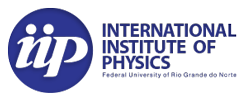Quantification of freedom of choice in a Bell test
Bell's theorem is a fundamental result that shows how our intuitive understanding of causality is inadequate to describe quantum phenomena, and can be experimentally demonstrated by violating a Bell inequality. However, the proper implementation of a Bell test requires stringent conditions, including space-like separation between observers and the detection efficiency above a certain threshold. In particular, the so-called assumption of "freedom of choice" or "measurement independence" is necessary for Bell's theorem to hold, which is very difficult to justify experimentally.
Recent studies have shown that quantum networks with several independent sources can replace the assumption of freedom of choice with the assumption of independence of sources, allowing for the demonstration of nonclassicality without the need for external, freely chosen inputs. The simplest example is represented by the triangle network with three independent sources of correlations, which has the advantage of being a robust and experimentally feasible network topology. It can be demonstrated that this network allows for the estimation of the degree of "freedom of choice" of a given Bell experiment via robust lower and upper bounds. Moreover, this approach is capable of detecting the nonclassicality of correlation even with a high degree of measurement dependence, even beyond Tsirelson's bound.









